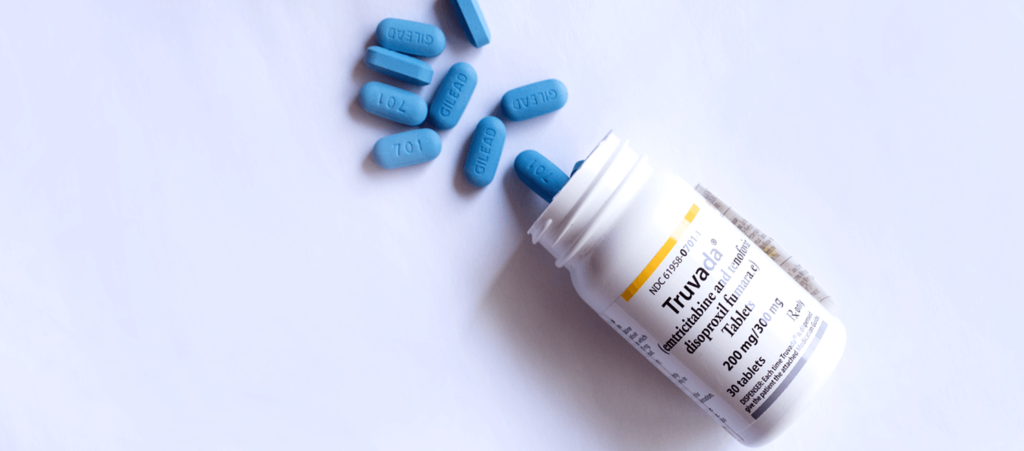Does Taking HIV PrEP Make People More Likely to Have Dangerous Sex?
If you knew there was a way you could avoid contracting HIV, would you have more dangerous sex? After all, if HIV isn’t a threat, why use a condom at all?
Many people have been asking these questions since HIV PrEP, a once-daily pill that drastically reduces your chances of contracting HIV from an HIV-positive partner during sexual contact, was approved by the FDA in 2012. In fact, when you get a PrEP prescription from Nurx, you can decrease your chances of contracting HIV up to 90 percent. With such a low chance of developing HIV, are sexually active people in high-risk HIV populations throwing caution to the wind and engaging in riskier sex?
Luckily, research says this is not a problem for most people.
What Researchers Studied
The main study that tackled this problem took a look at the sexual habits of 400 gay men between 2005 to 2007. The men were divided into two different groups. One began taking Truvada (the brand name for PrEP) immediately, and the other began taking Truvada after 9 months. The study investigators interviewed the subjects at the start of the trial and every three months after to ask about their sexual habits, use of drugs, and use of erectile dysfunction medicine. This gave them the chance to see just how the protection of PrEP influenced their lives.
The data they collected was somewhat startling.
What Researchers Found
At the initial interview, researchers determined the participants had an average of 7.25 partners during the last three months. Surprisingly, instead of seeing this number go up, as some might expect, it went down over the course of the study. Between months three and nine, participants reported six partners, and during the second year of the trial, they only reported 5.71.
What’s more, 29 percent of participants admitted they had unprotected sex with a man they knew was HIV positive at the beginning of the trial. Between months three and nine, this number dropped to 21 percent, and during the second year, it stayed nearly steady at 22 percent.
Not only did men in the study reduce the number of HIV-positive partners they had sex with, but they also reduced the number of sexual episodes they had with HIV-positive partners. At the beginning of the trial, the average number of unprotected sex occurrences with an HIV-positive partner was two. This went down to 1.37 during the second year. Additionally, the number of sexual episodes with HIV-negative partners increased from 2.75 to four, meaning that participants were being more cognizant and thoughtful of their sexual habits.
The Importance of Safe Sex
While this is just a single study, it reveals that taking PrEP really did make gay men more aware of who they were having sex with. They changed their habits to limit contact with HIV-positive partners even though they had the protection of Truvada.
Of course, HIV isn’t the only problem to worry about with unprotected sex. There is also the threat of sexually transmitted infections (STIs), such as gonorrhea or syphilis, as well as pregnancy. That’s why, if you do decide to get a Truvada or Descovy prescription from Nurx, you should look into another form of protection. Truvada and Descovy only shield against HIV transmission; it does nothing to stop the transmission of sperm and other diseases.
Condoms offer the best protection for STIs, while birth control combination pills, such as Yasmin or Natazia, can greatly decrease your chances of an unintended pregnancy. Luckily, Nurx is your one-stop shop for all things birth control. They offer safe and affordable prescriptions delivered right to your door without the hassle of going to the doctor.
With a combination of daily PrEP medication and another form of birth control and STI protection, you should be relatively safe to have sex with whoever you’d like. Just stay aware of the protection you’re using so you don’t jeopardize your health in any way.
This blog provides information about telemedicine, health and related subjects. The blog content and any linked materials herein are not intended to be, and should not be construed as a substitute for, medical or healthcare advice, diagnosis or treatment. Any reader or person with a medical concern should consult with an appropriately-licensed physician or other healthcare provider. This blog is provided purely for informational purposes. The views expressed herein are not sponsored by and do not represent the opinions of Nurx™.







